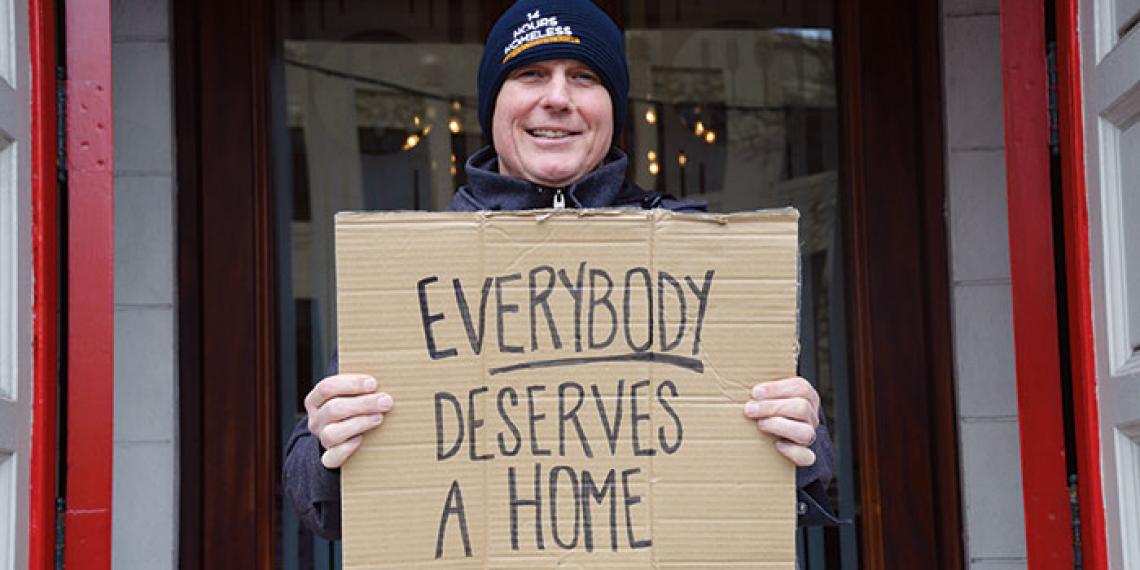You are here
Sleep out to help out

Well-known restaurateur Steve Logan and CQ Hotel manager Olivier Lacoua are challenging other restaurant and hotel owners to join them in sleeping out in Wellington for 14 Hours Homeless, on 7 October.
The co-founder of Logan Brown says, ‘Experiencing 14 Hours Homeless is a great way for me to do more than giving them a smile or dropping a coin in a hat. Putting myself in [homeless people’s] shoes means I can understand their situation better—and I’ll be supporting the services that are helping them every day.’
4 Hours Homeless is a Salvation Army initiative, now in its third year, that sees the organisation partner with other agencies, businesses, churches and individuals to raise awareness of the experiences of homeless people. It also raises funds to make a difference. People aged over 18 are invited to join co-workers, friends and family to seek sponsorship to spend 14 hours sleeping outside on cardboard or couches or in cars.
14 Hours Homeless will be held in Waitakere, Napier, Wellington and Invercargill on 7 October, and in Palmerston North on 5 October. In Palmerston North, soldiers from Linton Military Camp have signed up to take part.
But The Salvation Army’s new community engagement manager Rhondda Middleton is calling on Salvation Army groups to get behind the night too. ‘We know people might still be making up their minds, but it’s not too late to sign up to take part. As Christians we really need to put our faith into action—and as The Salvation Army we should really be the first to be standing up to be part of this. If you can’t take part, at least make a donation.’
Rhondda took part in 14 Hours Homeless in Waitakere last year and really enjoyed it. ‘Doing something like this with our community was great. There was a real sense that we were all there together and an awareness that we were making a difference,’ she says.
Recent University of Otago analysis on the 2013 census showed that 41,000 people (approximately one in 100) were living in severe housing deprivation in New Zealand. More than half were families with children. Housing ranged from living rough or in emergency shelters, boarding houses and maraes, to squeezing into over-crowded housing, or living in housing still woefully short on basic amenities.
‘Just to experience that one night of being homeless was enough to make me realise we have to do something,’ says Rhondda. ‘This is not a way that people should have to live! And at the moment, a lot of people don’t have any better options.’
By Christina Tyson (c) 'War Cry' magazine, 1 October 2016, pp 3
You can read 'War Cry' at your nearest Salvation Army church or centre, or subscribe through Salvationist Resources.